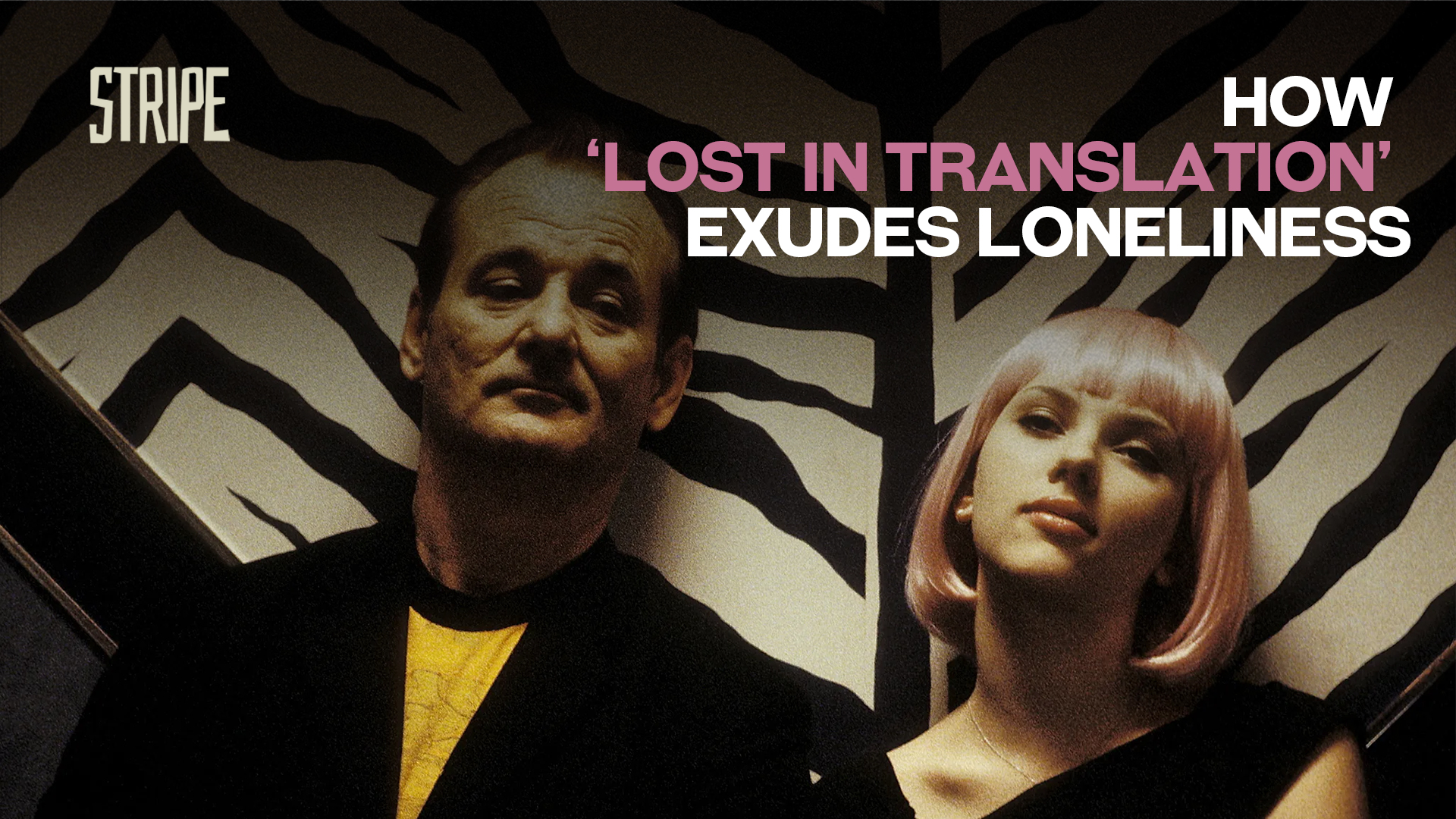Home
+
Despite its limited perspective and outdated racism, the 2003 movie persists because it paints an acute picture of isolation

Published : 26 Oct 2023, 07:29 PM
Superficially, you can boil down Lost in Translation to a single sentence – estranged Americans in Tokyo experience culture shock while being mildly racist.
But that doesn’t accurately capture the lasting impact of the film, or why it remains a favourite 20 years since its release.
One aspect of the film that remains keen and sharp after all this time is its acute exploration of loneliness.
Our two leads Bob Harris (Bill Murray) and Charlotte (Scarlett Johansson) are stuck in Tokyo for financial and personal reasons, struggling to understand its complexities or attune to its wavelength.
Bob, a fading movie star, is set to appear in a zesty advertisement for Suntory whiskey while he trudges through a midlife crisis. Speaking to his wife of 25 years back home, he feels drained. They are trying to renovate their new house, but it throws into sharp contrast how close their marriage is to falling apart.
Meanwhile, newlywed Charlotte has graduated with a degree in philosophy and constantly finds herself questioning her marriage and future as she skims through books filled with thoughts of destiny and soul searching.
At the hotel bar of the Park Hyatt Tokyo, the magnetic pull of their loneliness draws them together. Trapped in Tokyo and yearning for freedom, the two develop an unlikely friendship as they try to find joy in the bustling foreign metropolis.

The two characters are thrown together by the obvious limitation of a language barrier. Even when Bob is on set for his whiskey commercials, he has to interact through an incompetent translator. The constant back-and-forth where he fails to figure out what the director wants from him leaves him exhausted. But this lack of communication and connection extends to instances where photographers hound him, and multiple daily interactions where he fumbles trying to order food or chat with people at a party alone.
Charlotte, wandering through Buddhist temples or stumbling across an Ikebana group, is mesmerised by the rush of the city. But, despite all the people around her, she still feels lost and alone.
Both feel alienated, distant from the world in which they find themselves.
The cinematography enhances this feeling, capturing busy commutes on high-speed trains, dazzling restaurants, lively house parties, sensational karaoke bars and arcades, and the throngs of people at Shibuya Crossing. And yet, even in these broad tableaus, Bob and Charlotte are isolated.
Writer and director Sofia Coppola deserves serious credit for managing the careful balancing act of making a city feel exceedingly lively, while emphasizing the loneliness of her leads’ interior lives.
Bob and Charlotte have other characteristics that set them apart from others while drawing them together. The two are insomniacs and spend their nights wandering through hotel bars or going for late-night swims. Their escapades keep drawing the other into their trajectory, whether they’re wasting time watching movies or sharing expensive champagne.

Despite this connection, both of them want to escape from Tokyo. One clever touch is showing Bob playing golf in his room, which shows him yearning for a different setting.
Though Bob and Charlotte manage to keep each other entertained, there’s also a feeling that they’re stuck in a loop. We watch their dynamic chemistry unfold onscreen, but can also understand the isolation and dissatisfaction that pulls them together.
The excellent shoegaze-y soundtrack intensifies both the boredom and their growing infatuation. Tracks like ‘Too Young’ by Phoenix, ‘Brass in Pocket’ by Pretenders, ‘Sometimes’ by My Bloody Valentine, and ‘Happy End’ by Kaze Wo Atsumete make their appearance, weaving moments of fleeting joy and lingering abandonment into a melancholy backdrop.
And then there is the bewilderingly magical ending. A perfect example of saying a lot with a little that leaves the audience to ponder what their final interaction means.
Despite the difference in age, personality, and stages of life, the two experience a brief moment of connection. In the end, it is that yearning that crystallises the appeal of Lost in Translation. Regardless of the overwhelming nature of life and the world, there is always the hope that you can find someone else to share your loneliness with.
This article is part of Stripe, bdnews24.com's special publication focusing on culture and society from a youth perspective.